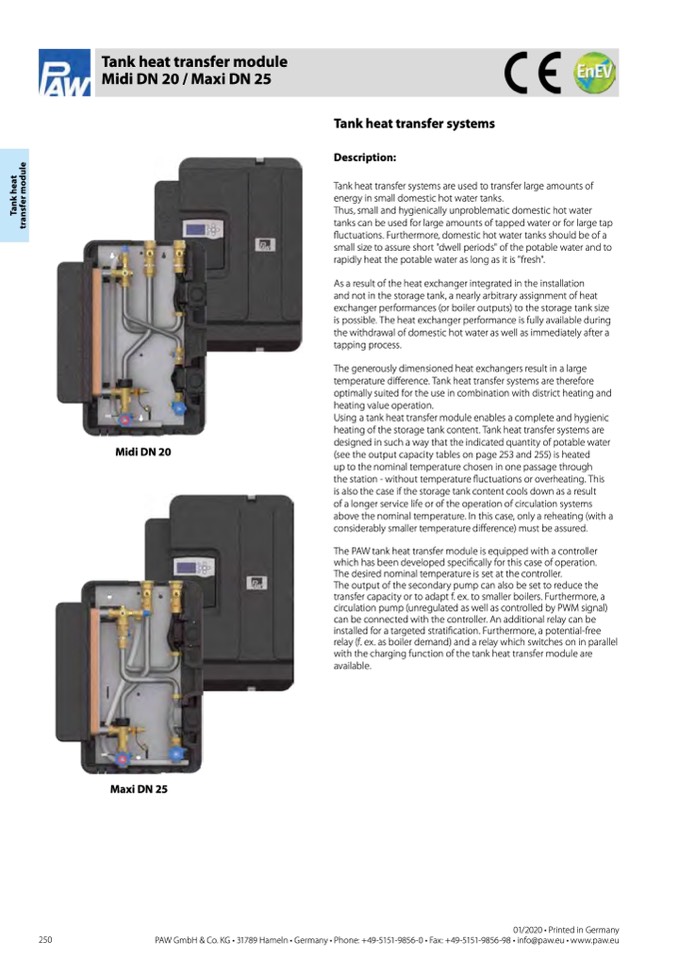
Tank heat transfer module
Midi DN 20 / Maxi DN 25
Midi DN 20
Tank heat transfer systems
Description:
Tank heat transfer systems are used to transfer large amounts of
energy in small domestic hot water tanks.
Thus, small and hygienically unproblematic domestic hot water
tanks can be used for large amounts of tapped water or for large tap
fluctuations. Furthermore, domestic hot water tanks should be of a
small size to assure short "dwell periods" of the potable water and to
rapidly heat the potable water as long as it is "fresh".
As a result of the heat exchanger integrated in the installation
and not in the storage tank, a nearly arbitrary assignment of heat
exchanger performances (or boiler outputs) to the storage tank size
is possible. The heat exchanger performance is fully available during
the withdrawal of domestic hot water as well as immediately after a
tapping process.
The generously dimensioned heat exchangers result in a large
temperature difference. Tank heat transfer systems are therefore
optimally suited for the use in combination with district heating and
heating value operation.
Using a tank heat transfer module enables a complete and hygienic
heating of the storage tank content. Tank heat transfer systems are
designed in such a way that the indicated quantity of potable water
(see the output capacity tables on page 253 and 255) is heated
up to the nominal temperature chosen in one passage through
the station - without temperature fluctuations or overheating. This
is also the case if the storage tank content cools down as a result
of a longer service life or of the operation of circulation systems
above the nominal temperature. In this case, only a reheating (with a
considerably smaller temperature difference) must be assured.
The PAW tank heat transfer module is equipped with a controller
which has been developed specifically for this case of operation.
The desired nominal temperature is set at the controller.
The output of the secondary pump can also be set to reduce the
transfer capacity or to adapt f. ex. to smaller boilers. Furthermore, a
circulation pump (unregulated as well as controlled by PWM signal)
can be connected with the controller. An additional relay can be
installed for a targeted stratification. Furthermore, a potential-free
relay (f. ex. as boiler demand) and a relay which switches on in parallel
with the charging function of the tank heat transfer module are
available.
250
01/2020 • Printed in Germany
PAW GmbH & Co. KG • 31789 Hameln • Germany • Phone: +49-5151-9856-0 • Fax: +49-5151-9856-98 • info@paw.eu • www.paw.eu
Maxi DN 25
T
a
n
k
h
e
a
t
t
r
a
n
s
f
e
r
m
o
d
u
l
e

